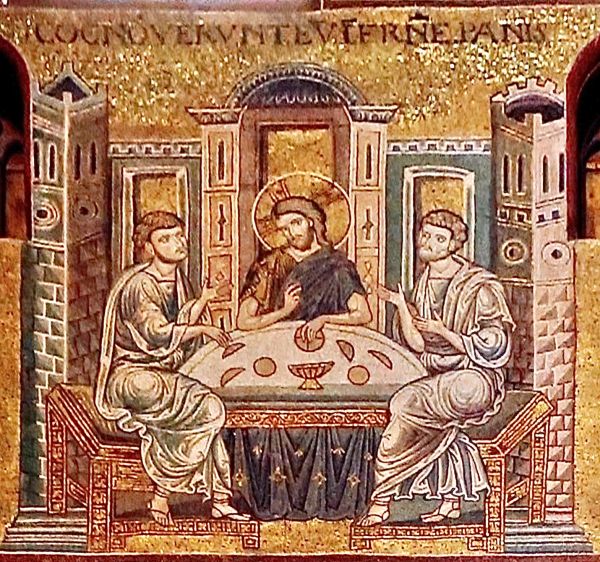The Risen One, before ascending to the Father, appeared to the Eleven and the other disciples, making his great commission: to be witnesses of new life, preaching the Gospel to all peoples.
The Poor Man of Assisi, always absorbed in contemplation of the mysteries of Christ, understood that in the name of the crucified and risen Lord, conversion and the forgiveness of sins would be preached to all men.
His open mind enabled him to keenly scrutinise and penetrate the Scriptures, considering them of supreme importance.
Indeed, the Sources illustrate:
"The preacher," he said, "must first draw in the secret of prayer what he will then pour out in his speeches.
First he must warm himself inwardly, so as not to utter cold words outwardly'.
It is an office, he emphasised, worthy of reverence, and all must revere those who exercise it:
They are the life of the body, the adversaries of demons, they are the lamp of the world [...].
He once had it written as a general rule:
"We must honour and venerate all theologians and those who dispense the word of God to us as those who administer spirit and life"" (FF 747).
And again the Greater Legend instructs:
"He sought the salvation of souls with passionate piety, with zeal and fervent jealousy and, therefore, he said that he felt himself filled with the sweetest perfumes and, so to speak, sprinkled with precious ointment, when he heard that his brothers scattered throughout the world, with the sweet perfume of their holiness, induced many to return to the right path.
On hearing such news, he exulted in the spirit and filled with enviable blessings those brothers who, by word and deed, led sinners to the love of Christ" (FF 1138).
The fulfilment of the Scriptures about Jesus becomes for Francis the entry of the Kerigma into his spiritual journey, with the consequent transformation of the Poverello into a Servant of the Word proclaimed with faith and witnessed by works.
The Easter of the crucified and risen Lord resulted in the tireless preaching of salvation at the price of his blood shed for all in remission of the sins of the whole world.
The Minim made his own the mission entrusted by Christ to the disciples, driven by the power of the Spirit, towards the Kingdom of God.
«Thus it is written, that Christ would suffer and rise from the dead on the third day, and that conversion for the remission of sins would be preached in his name to all nations, beginning at Jerusalem" (Lk 24:46-47).
Easter Octave Thursday (Lk 24:35-48)












